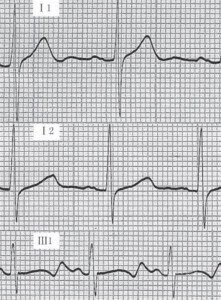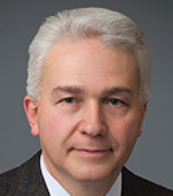
How on earth do people cope with the long QT syndrome type that can cause sudden cardiac death just from hearing a sudden loud sound?
Long QT syndrome type 2 puts the patient at more risk of cardiac arrest or fainting from hearing a sudden loud or jarring noise than from exertional exercise, though exercise is also a potential trigger of a cardiac event or fainting.
Some loud sounds that can trigger a cardiac arrest in LQTS 2 include:
• Clap of thunder
• Balloon popping
• Jackhammer
• Door slamming
• Alarm clock
• Doorbell
“LQT2 patients are at high risk for arrhythmic events with sudden loud noise, such as ringing of an alarm clock or telephone,” says Andrea Natale, MD, cardiac electrophysiologist and executive medical director of the Texas Cardiac Arrhythmia Institute at St. David’s Medical Center.
“In a study conducted by Kim et al (Heart Rhythm, 2010 Dec), the first cardiac event was triggered by sudden arousal (by loud noise or acute emotion), in 44% of cases—and by a highly heterogeneous group of triggers, including exercise, in the remaining cases,” adds Dr. Natale.
Key Player but Not Sole Cause of Cardiac Arrest
“There is very little research on triggering of cardiac events by auditory stimuli in patients with LQTS 2,” states Journal of Rare Cardiovascular Diseases (2014).
The report adds, “Additionally, none of the research available provide strong evidence that auditory stimulus alone can trigger cardiac event in patient with LQTS 2.”
The paper also notes that few actual cases of sound-induced arrhythmia have been documented in the medical literature.
“To conclude, despite the absence of direct evidence, auditory stimuli may be a significant risk factor for cardiac events in patients with LQTS 2,” says the JRCD.
“A new, case-control or cohort study is needed to precisely evaluate if cardiac events in patients with LQTS 2 are specifically and exclusively triggered by auditory stimuli,” continues the JRCD conclusion.
“Since there is obviously high risk associated with auditory stimuli for patients with LQTS, it is advisable to remove alarm clocks, telephones and loud, noisy equipment from their bedrooms.”
It’s easy to see how there could be noise-induced or acoustic triggers of sudden cardiac death that go undiagnosed as such.
How many times have you heard of a youth basketball or football player unexpectedly dropping to the ground and dying a short time later?
What are the odds that any witnesses, paramedics or ER staff will wonder if the fatal cardiac event came moments after a sudden blast of a whistle or hollering teammate?
LQTS 2: Coping with Day to Day Living
How does one go through life without sooner or later being startled by loud noise?
Avoiding exposure to startling loud sounds is impossible without wearing ear plugs 24/7.
“Beta blockers effectively reduce life-threatening arrhythmias in LQT patients,” says Dr. Natale.
Beta blocker drugs block the effects of the “fight or flight” hormone adrenaline, thus slowing heartbeat and reducing blood pressure.
“Patients should also consider making lifestyle changes that can minimize exposure to abrupt loud noises,” says Dr. Natale. This requires careful planning.
For example, how many times have you been watching TV when a commercial comes on with an unpredictable loud component — such as a child screaming?
The woman in one of the America’s Best eyeglass commercials suddenly screams. For first-time viewers with long QT syndrome 2, it would be totally unexpected, not to mention startling.
Avoiding Sudden Loud Startling Noises
• Elimination of buzzing-type alarm clocks.
• Using hairdryer at only low power.
• Doorbell consisting of soft chime.
• Not letting microwave reach end of heating time when a loud beeping occurs.
• Not having a dog; even a well-trained dog is bound to unexpectedly bark loudly.
• Avoiding power tools.
• Wearing ear plugs when loud sounds are expected such as when working in a kitchen (sink disposal, dropping chinaware), when around young kids and babies, construction sites, in traffic (blaring car horns, motorcycle engines), attending ball games, parties and movies, etc.
Between beta blockers, an implantable cardioverter device, frequent use of ear plugs and home modifications, a person with long QT syndrome 2 shouldn’t have to live in fear of dying by loud sudden noise.
Case of 21-Year-Old Postpartum Woman
• Undiagnosed, fainted after hearing cell phone alarm; second syncope episode followed hearing son’s loud video game.
• QTc in ER was 530 ms.
• Received an implantable cardioverter device (ICD) after beta blocker proved ineffective.
Dr. Natale’s greatest reward is restoring his patients to a life free of cardiac arrhythmia. He pioneered a circumferential ultrasound vein-ablation system to correct atrial fibrillation and performed the procedure on the world’s first five patients.
greatest reward is restoring his patients to a life free of cardiac arrhythmia. He pioneered a circumferential ultrasound vein-ablation system to correct atrial fibrillation and performed the procedure on the world’s first five patients.
 Lorra Garrick has been covering medical, fitness and cybersecurity topics for many years, having written thousands of articles for print magazines and websites, including as a ghostwriter. She’s also a former ACE-certified personal trainer.
Lorra Garrick has been covering medical, fitness and cybersecurity topics for many years, having written thousands of articles for print magazines and websites, including as a ghostwriter. She’s also a former ACE-certified personal trainer.
.


























